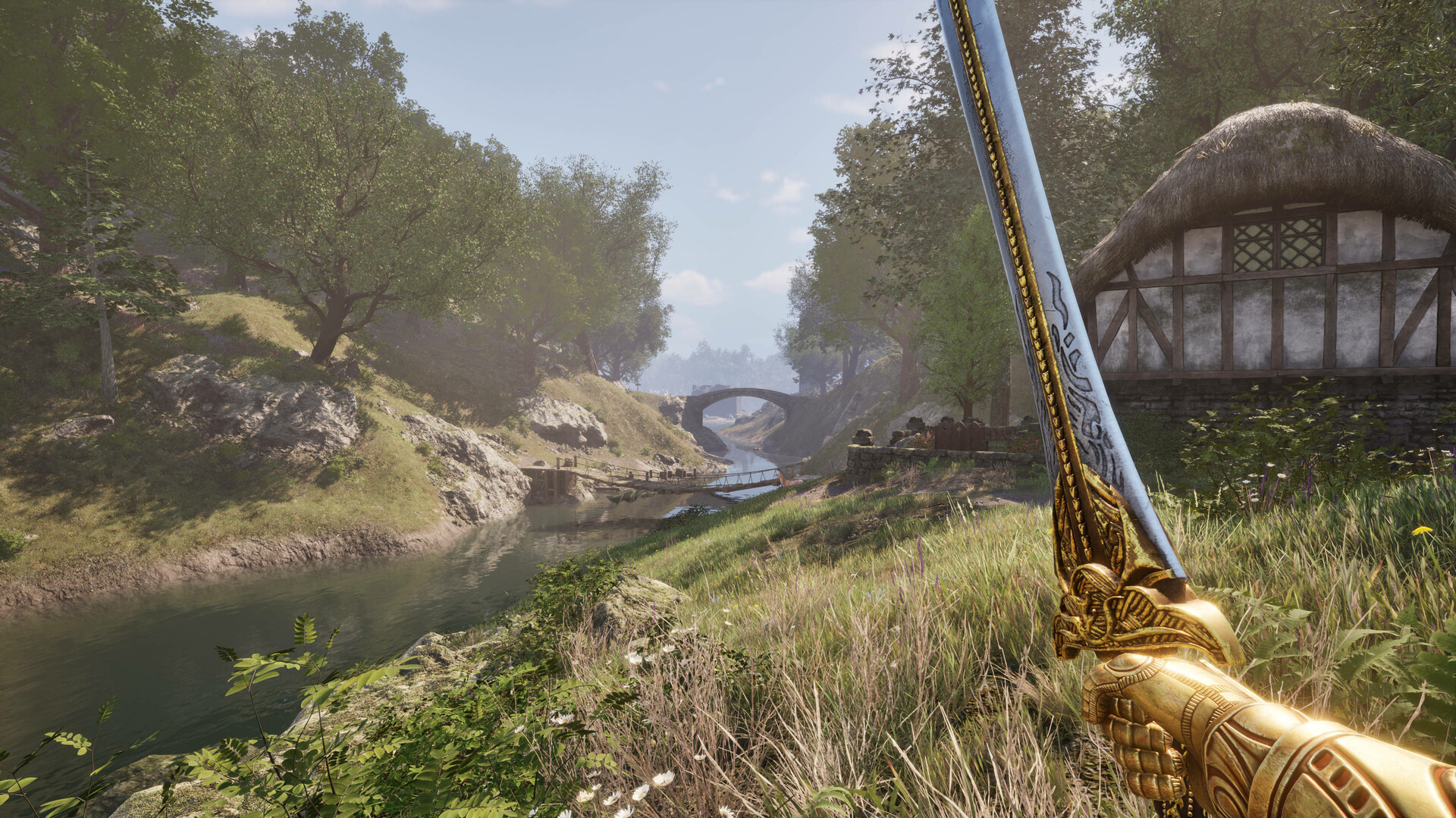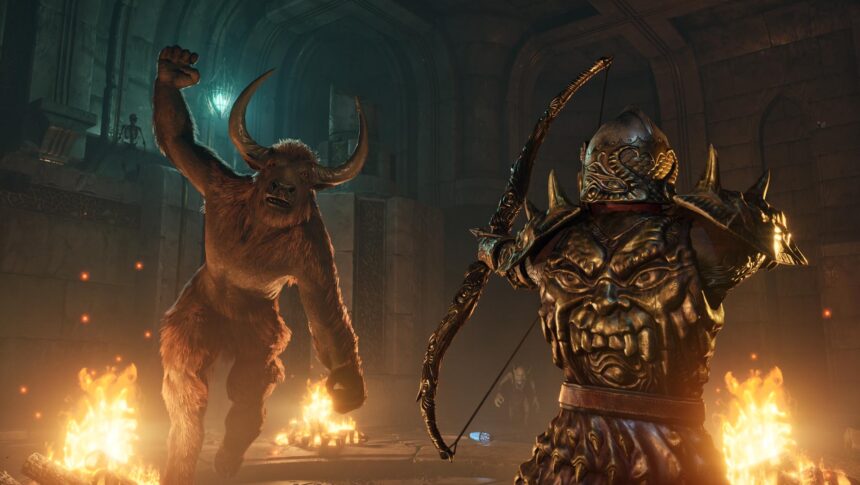When it launched in 2011, The Elder Scrolls 5: Skyrim was deemed an prompt masterpiece (and for good motive), with the open world motion RPG by some means outmatching and outdoing even the unprecedented highs of its predecessor. That wasn’t a imply feat both. In any case, The Elder Scrolls 4: Oblivion was, in its personal proper, an unabashed masterpiece, a seminal title that served as a landmark RPG, and a foundational expertise that confirmed what an open world sport of the nascent HD period may look and play like. For Skyrim to ship an expertise that scaled heights that had been by some means even loftier wasn’t an achievement that might be overlooked- and, after all, it wasn’t.
However although Skyrim constructed and improved upon the genre-defining foundations of Oblivion in numerous methods – from the design of the open and the way dynamic and alive it felt to how way more participating exploration was to the environmental variety it boasted – there have been no less than a handful of areas the place it felt both like a lateral step, or outright a backwards one- essentially the most distinguished being its development mechanics. Although calling Skyrim’s development programs outright dangerous would perhaps be a little bit of an unfair assertion, it’s secure to say that they did really feel like a regression from what the collection had been identified for prior to now.
The video games trade is, after all, been collectively revisiting Oblivion (or visiting it for the primary time, relying in your stage of engagement with the unique) because of Bethesda and Virtuos’ not too long ago launched The Elder Scrolls 4: Oblivion Remastered, which has solely cemented that notion additional for a lot of. Barring some tweaks and changes made for balancing functions (all of which had been, to be truthful, positively crucial), Oblivion Remastered brings over the unique sport’s development and customization mechanics largely unchanged, and in doing so as soon as once more proves the truth that, purely as an RPG, the 2006 title (and its 2025 remaster) has extra going for it than the sport that will follow-up on it half a decade later.
First, let’s discuss concerning the elements of Skyrim’s development programs that do work actually well-chief amongst them being the sheer construct selection that the sport touts. Skyrim is the type of RPG that doesn’t like getting within the participant’s approach for just about something, and as an alternative encourages absolute freedom and company. Its RPG mechanics make sure that gamers are rewarded for taking part in nevertheless they wish to play, which is one thing that simply retains feeding into itself throughout everything of the sport. The extra you play a sure approach, the higher you get at it, which creates a continuing cycle of suggestions and constructive reinforcement, additional emphasizing the sport’s free-flowing nature.
That, after all, is the best way most Bethesda Sport Studios RPGs are typically structured, and Skyrim is nearly as good an implementation of that formulation as any. What, then, is it concerning the sport precisely that makes it a extra scaled again RPG expertise than its predecessors, and Oblivion specifically? Nicely, it’s the plain and easy undeniable fact that past that core system, which works very equally in each video games, surrounding development mechanics in Skyrim really feel way more pared down. Take, as an example, the truth that the sport replaces Oblivion’s stat upgrades upon levelling up with a perks system. The place Oblivion has gamers investing factors into a number of traits and attributes every time upon levelling up, Skyrim as an alternative merely asks you to take a position perk factors in a mess of talent bushes. In comparison with Oblivion’s improve mechanics, which afford a a lot higher and extra granular diploma of management over the way you need your character to advance and develop, Skyrim’s perks system finally ends up feeling a little bit bit extra restrictive and, as such, much less rewarding.
Curiously sufficient, by giving gamers higher management over the way to progress, Oblivion finally ends up inserting extra restrictions on the participant. For instance, for those who’re attempting to go for an archery construct, each time you stage up, you’re going to should just be sure you preserve investing factors within the attributes that govern your bow and arrow expertise. No, you don’t have to take action each single time you stage up, however each time you make the choice to not, you run the chance of letting that attribute fall behind, which might be doubtlessly damaging to your construct. However that’s precisely the point- like a basic RPG, Oblivion makes you resolve what you need your construct and play type to be, after which offers you fixed and concrete suggestions with tangible outcomes to let you understand that your choices have precise weight.
Technically, Skyrim does find yourself providing higher freedom than Oblivion that approach, as a result of the previous’s development programs make sure that you by no means really feel such as you’re locked in to anyone path or construct, as an alternative letting you fluidly swap up your play type nevertheless and everytime you need. That mentioned, by fully eliminating issues similar to lessons or attributes and as an alternative boiling a lot of the upgrades all the way down to only a easy perks system, Skyrim simplifies and streamlines issues a little bit bit an excessive amount of.
You clearly should acknowledge the truth that Oblivion itself scaled again on Morrowind’s RPG mechanics in its personal methods, however as its newly launched remaster proves once more, it nonetheless positively felt like an precise, basic RPG expertise. As compared, Skyrim, for all of its many, many strengths, felt extra of an motion journey expertise that additionally had wholesome dollops of RPG components and mechanics sprinkled in. Very a lot by design, the 2011 title makes it attainable for gamers to have minimal engagement with its development programs, to the extent that for those who so want, you possibly can just about ignore them altogether. That may be very a lot not the case the place Oblivion is worried.

To be fully truthful to Skyrim, the programs that it does have in place work completely nicely for what the sport is. Those that do need an RPG expertise can positively get one out of Skyrim, even when it might not be as nuanced or concerned as a few of the style’s extra advanced choices, and taking part in round with its free flowing nature and the bevy of choices it has obtainable by way of completely different builds and play kinds hardly stops being enjoyable. That, in spite of everything, is precisely what makes it the type of sport you could make investments actually lots of of hours in. However although Skyrim could also be a greater and extra compelling bundle total than its predecessor, purely as an RPG, it’s maybe not too controversial to counsel that Oblivion has it beat.
The truth is, you could possibly simply argue that perhaps aside from Fallout 3 (which can also be debatable), Oblivion is a greater and extra participating RPG than every other sport that Bethesda Sport Studios has put out since then. From Fallout 4, which was painfully streamlined and restricted on this division, to Starfield, which did make vital enhancements however nonetheless didn’t handle to get again to the requirements that the studio had as soon as set with its RPG programs, principally all of BGS’ post-Oblivion video games have did not outdo the 2006 basic’s participant development mechanics. If nothing else, that’s testomony to the timeless nature of its design.








